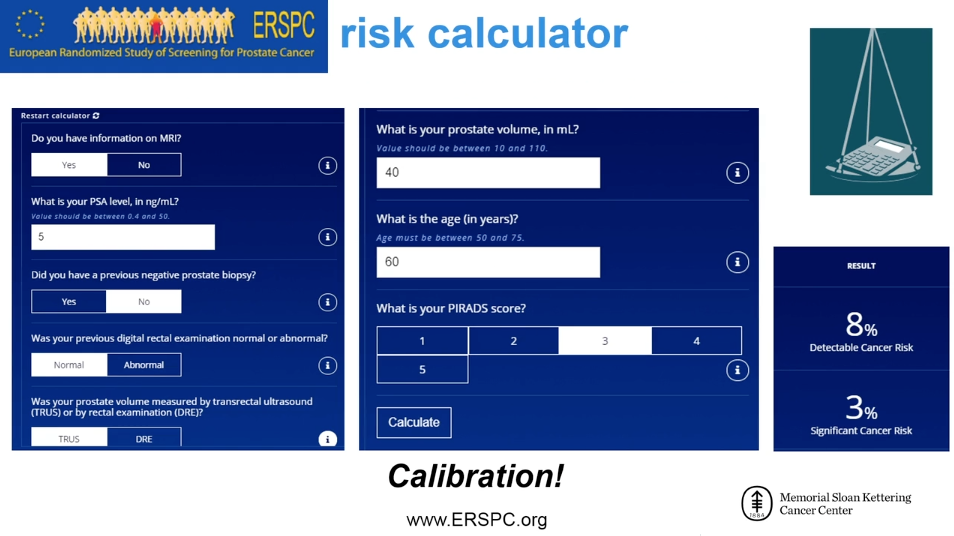Sigrid V. Carlsson, MD, PhD, MPH, presented “State of the Art in “Smart” Prostate Cancer Screening: Defining the Need for Precision Diagnostics” during The 4th Global Summit on Precision Diagnosis and Treatment of Prostate Cancer on October 3, 2019 in Boston, Massachusetts.
How to cite: Carlsson, Sigrid V. “State of the Art in “Smart” Prostate Cancer Screening: Defining the Need for Precision Diagnostics” October 3, 2019. Accessed Dec 2024. https://dev.grandroundsinurology.com/state-of-the-art-in-smart-prostate-cancer-screening-defining-the-need-for-precision-diagnostics/
State of the Art in “Smart” Prostate Cancer Screening: Defining the Need for Precision Diagnostics – Summary:
Sigrid V. Carlsson, MD, PhD, MPH, discusses the evolution of attitudes toward PSA screening for prostate cancer over time, and the importance of implementing the PSA test in a way that will truly benefit patients. She details how risk-stratifying algorithms and calculators, biomarkers, and MRI can play a role in refining prostate cancer screening.
Abstract:
Prior to the United States Preventive Services Task Force (USPSTF) releasing their grade D recommendation against PSA-based prostate cancer screening, widespread, routine PSA testing led to overdiagnosis and overtreatment. However, screening also resulted in lower prostate cancer mortality. Since the decline of screening, the United States has seen a definitive increase in distant metastases in men over age 75. In order to minimize overdiagnosis while retaining the ability to detect significant disease early in at-risk patients, urologists need a smarter approach to screening.
The use of MRI to decide when to biopsy and to identify biopsy targets has improved the prostate cancer detection pathway. While guidelines have integrated MRI into clinical diagnosis, and MRI does improve the detection of significant cancer, decrease the number of unnecessary biopsies, and reduce overdiagnosis, it can have a significant miss rate. For instance, the PROMIS trial showed that MRI had a negative predictive value of only 76% for clinically significant prostate cancer. MRI is also associated with a substantial proportion of false positives and variability of interpretation among radiologists. The utility of mpMRI alone is therefore limited.
Risk-stratifying algorithms, as well as risk calculators that take the sum of information on a patient, including age and PSA, and produce an objective assessment of the patient’s risk, can further refine screening approaches. New biomarker-based tests like STHLM3 and 4KScore are also valuable diagnostic tools in the urologic armamentarium.
About The 4th Global Summit on Precision Diagnosis and Treatment of Prostate Cancer:
The Global Summit on Precision Diagnosis and Treatment of Prostate Cancer is a multi-day, multi-disciplinary forum designated to informing health care stakeholders about topics including in-vitro fluid- and tissue-based molecular diagnostics, novel observation strategies such as active surveillance, and novel therapeutic interventions. Along with this forum’s efforts to form a consensus on the future of prostate diagnostics and precision care, it aims to create an educational and research strategy for its realization. Dr. Carlsson presented this lecture during the 4th iteration of this Summit in 2019.
ABOUT THE AUTHOR
Sigrid Carlsson, MD, PhD, MPH, is an Assistant Attending Epidemiologist at Memorial Sloan Kettering Cancer Center (MSKCC) with 15 years of prostate cancer research experience and over 100 publications. Her PhD thesis stemmed from the world’s largest study of prostate cancer screening, the European Randomized Study of Screening for Prostate Cancer (ERSPC), which investigated how quality of life was affected by screening and treatment. Before pursuing postdoctoral studies in urologic oncology at MSKCC, Dr. Carlsson was a physician in Sweden. She obtained an MPH degree from Harvard T.H. Chan School of Public Health.
Currently, Dr. Carlsson’s research focuses on developing risk-stratified approaches to screening, diagnosis, treatment, and follow-up of prostate cancer patients. She is also the PI of a study funded by the Patty Brisben Foundation to improve the method of asking questions about women’s sexual health. She is a co-investigator on a multi-center study funded by Movember (PI: Andrew J. Vickers, PhD) that evaluates the impact of survivorship care plans and navigation tools on patients with prostate cancer after radiotherapy. She is a co-investigator on two NIH-funded research projects, one of which investigates biomarkers and risk stratification in localized prostate cancer (PI: Hans Lilja, MD, PhD). The second project is focused on developing models to improve prostate cancer outcomes across diverse populations (PI: Ruth Etzioni, PhD).


